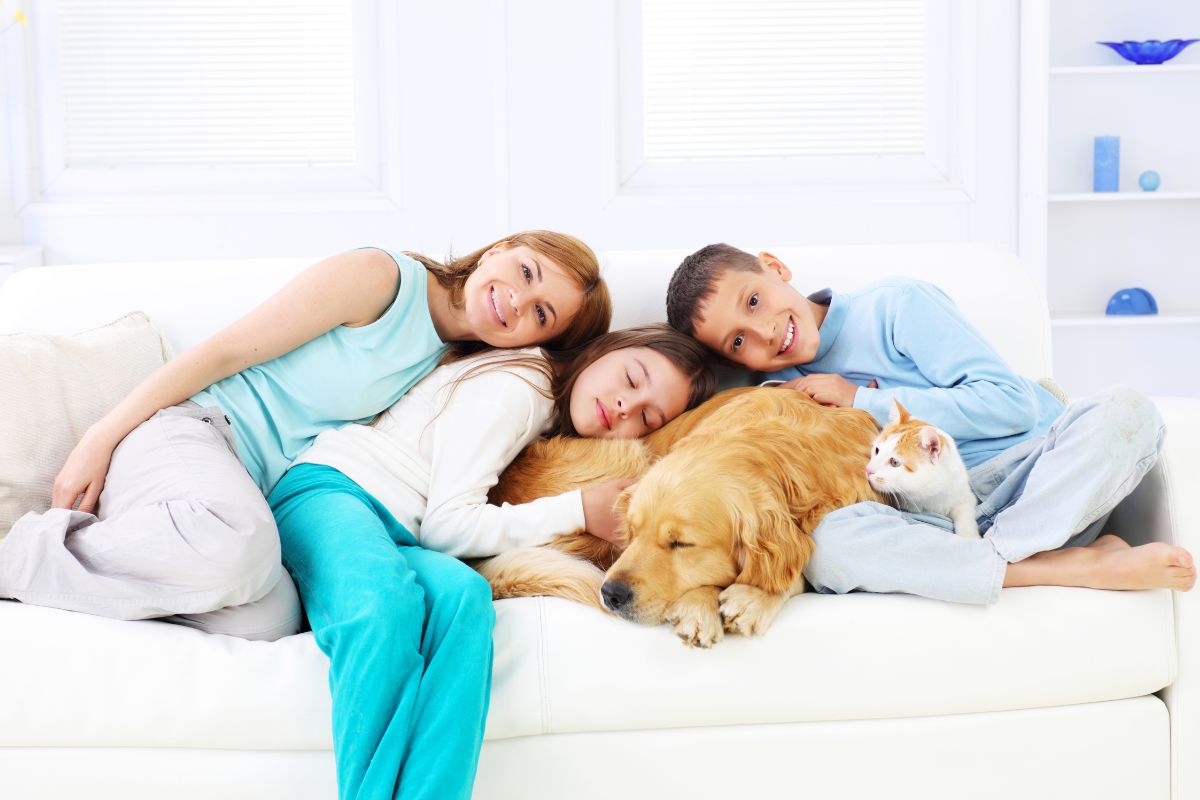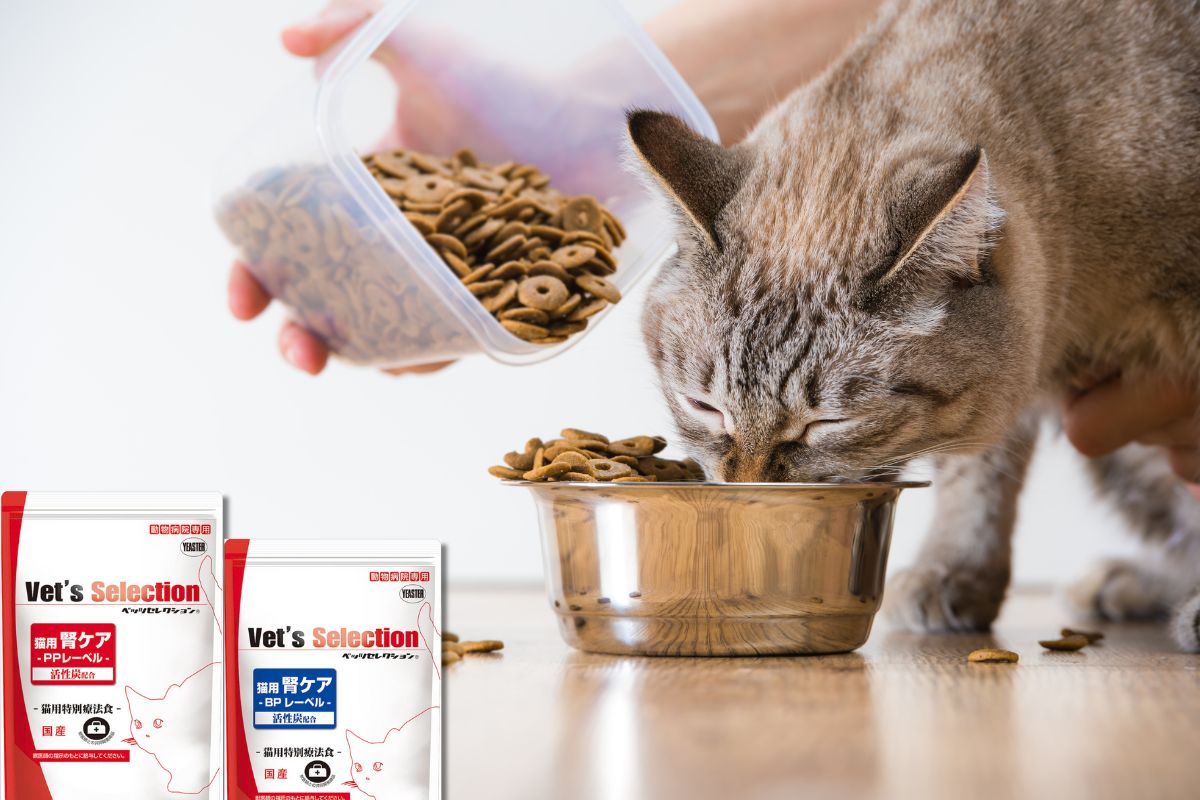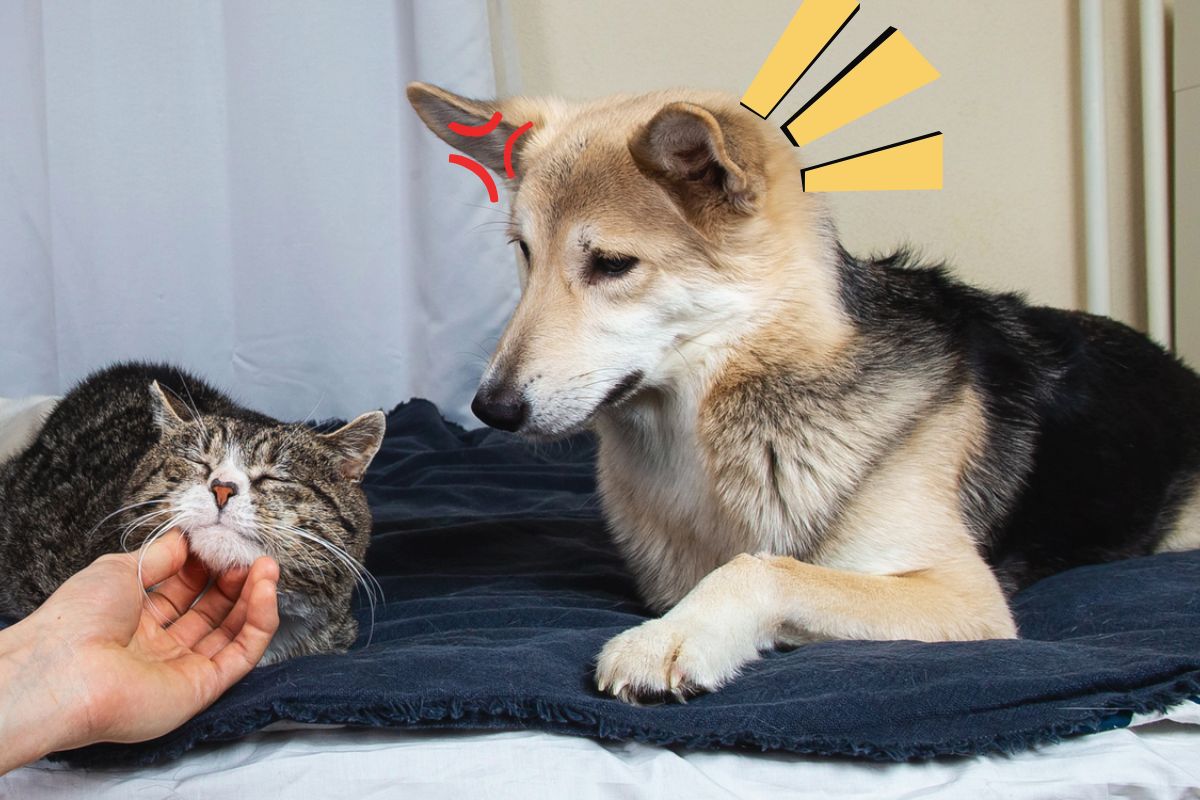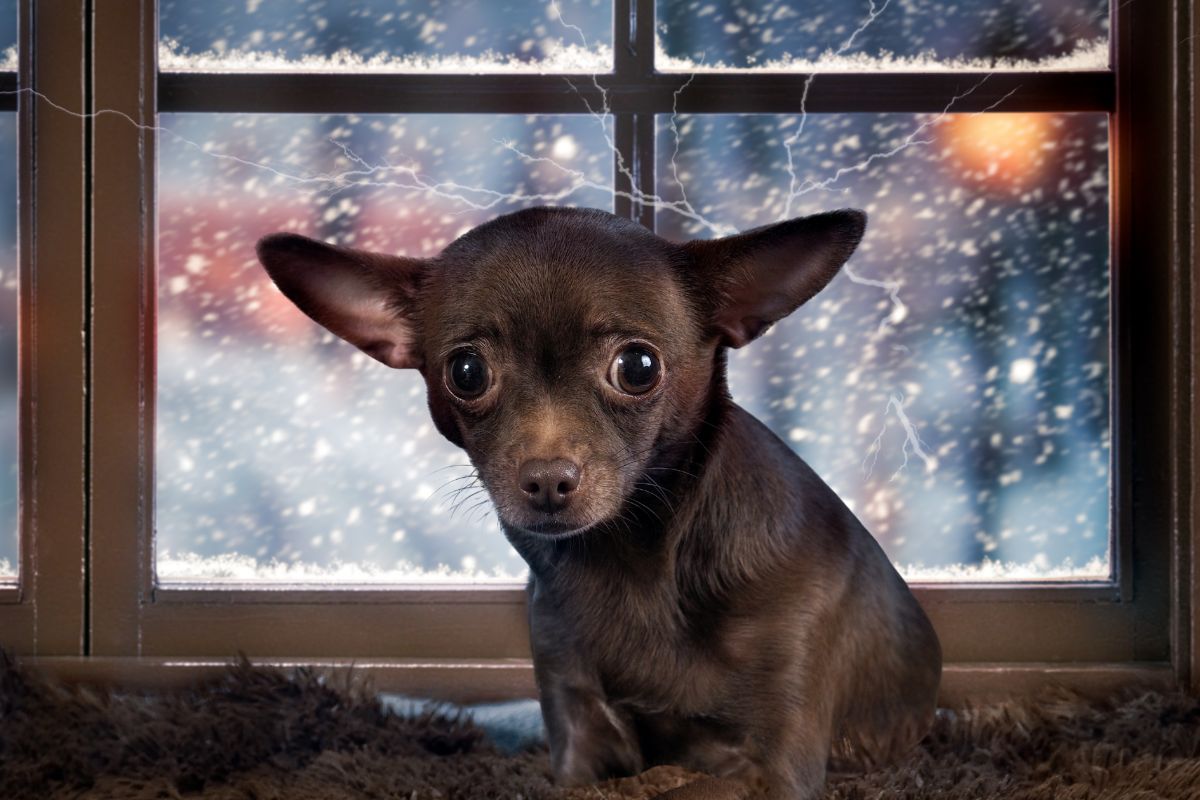If your dog tries to squeeze into your arms when you’re holding another cat, or your cat suddenly walks away and refuses to look at you, there’s a good chance they’re feeling “jealous.” But that emotion isn’t just about possession. Behind that sulky stare lies a complex emotional world that, once understood, can help you love and care for your pets in a more meaningful way.
Do dogs and cats really feel jealousy?
Not only humans feel jealous. Many behavioral studies show that dogs and cats display signs of jealousy when their owner gives attention to another pet.
Dogs tend to react more obviously—they might bark, push their way in, lick your hand, or do anything to reclaim your attention. Cats, on the other hand, are more subtle. They might turn away, act indifferent, or silently disappear. Though they seem calm, they often feel left out.
In their minds, you’re not just someone who feeds them, but a trusted companion—a member of their pack they don’t want to share.

Signs your pet is feeling jealous
Jealousy in pets often shows through behavior. Some of the most common signs include:
- Clinginess and constant attention-seeking
- Acting out, biting or knocking things over
- Refusing food or losing interest in play
- Sudden mood changes from cheerful to withdrawn
If these behaviors appear right after you interact with another pet, it’s likely a clear sign of jealousy.

Why pets easily get jealous
The most common reason is their instinct to protect emotional bonds. When dogs or cats sense their owner’s affection being shared, they react to win it back.
Changes in the living environment can also trigger jealousy. A new scent, a moved bed, or the arrival of another animal may make them feel insecure.
Additionally, lack of exercise or mental stimulation often increases jealousy and stress. Pets that are lonely or bored are more sensitive to changes in your attention.
How to help your pet overcome jealousy
The best way is to share your time and affection fairly. Set aside individual time for each pet every day, even just a few minutes. When you pet or play with them, call their names so they feel equally loved.
Try creating positive shared activities, such as feeding them together, taking them for a walk at the same time, or playing the same game. When they associate each other’s presence with fun moments, jealousy will gradually turn into comfort and familiarity.
Keeping a stable daily routine is also essential. Pets rely on consistency to feel safe, so regular feeding and play schedules help reduce anxiety and emotional outbursts.

Nutrition plays a role in pet emotions
Physical health is deeply connected to emotional balance. Nutritional deficiencies or internal imbalances can make pets tired, irritable, and more reactive to changes.
A well-balanced diet helps stabilize both body and mood. For cats in particular, supporting kidney health and taurine intake is crucial for maintaining vitality and emotional stability.
You can consider products from Japan, such as Vet’s Selection Cat Kidney Care PP Label for Cat or Vet’s Selection Cat Kidney Care BP Label for Cat. These formulas support kidney function, mineral balance, and taurine levels, helping cats maintain good physical and emotional health.

Learn to love fairly
Pets don’t need fancy gifts—they just need to feel equally loved. Maintain simple routines like petting both before leaving home, dividing treats evenly, or setting a “special time” for each one daily.
Such small actions build a sense of security, letting your pets know that their place in your heart will never change, no matter how many “new members” appear.
When your dog or cat gets jealous, it isn’t a nuisance—it’s their way of saying, “I love you, too.” Behind every bark, stare, or pout lies a desire to feel noticed and loved.
By showing fairness, consistency, and care in both emotion and nutrition, you’ll nurture a happier, more harmonious relationship—where every wag and purr becomes a sign of trust and affection.


 Vietnamese
Vietnamese  日本語
日本語  English
English 



